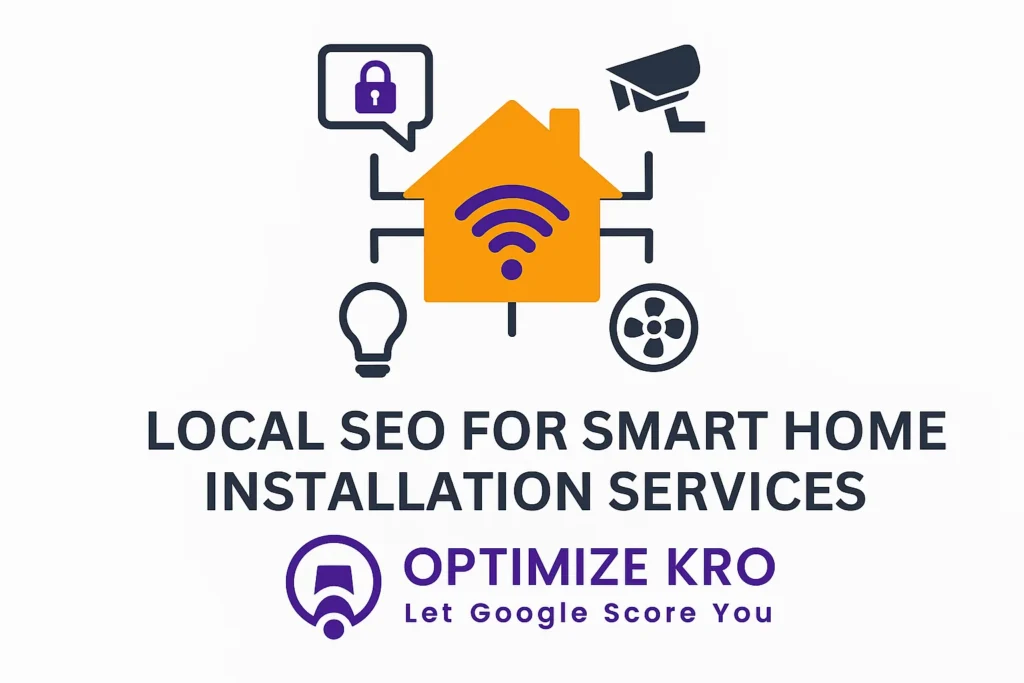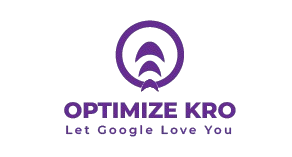Smart homes are no longer just a luxury—they’re becoming a necessity. From security systems and smart lighting to voice-activated assistants, more homeowners are investing in smart technology. But here’s the big question: how do these homeowners find reliable smart home installation experts? The answer lies in local SEO. If you’re a smart home installer and you’re not visible in local searches, you’re missing out on a huge pool of potential clients right in your area.
- Understanding Local SEO Basics
- The Importance of Local Visibility
- Keyword Research for Smart Home Installers
- Optimizing Google Business Profile
- On-Page SEO for Smart Home Websites
- Content Marketing for Local Reach
- Building Local Citations
- Reviews and Reputation Management
- Mobile Optimization for Local Searches
- Leveraging Social Media for Local SEO
- Backlink Building with Local Relevance
- Voice Search Optimization
- What Our Clients Say
- Tracking and Measuring Success
- Common Mistakes to Avoid in Local SEO
- Future of Local SEO in Smart Home Services
- Conclusion

Understanding Local SEO Basics
What is Local SEO?
Local SEO (Search Engine Optimization) is all about optimizing your business so it shows up when people search for services near them. For example, when someone types “smart home installation near me” or “home automation expert in [city],” your business should be on the map—literally.
Why Local SEO is Crucial for Smart Home Installers
Unlike e-commerce businesses, smart home installers serve specific regions. You can’t install a smart thermostat for someone hundreds of miles away. Local SEO ensures you’re targeting customers who are most likely to book your services.
The Importance of Local Visibility
Homeowners typically search on Google Maps or use mobile search queries like “best smart home installer near me.” If you don’t appear in those local results, competitors will scoop up your leads. Visibility in the Google Map Pack is golden—it places you at the top of the search results with reviews, phone number, and directions.
Keyword Research for Smart Home Installers
Targeting the right keywords is step one. Think beyond just “smart home installer.” Use variations like:
- “Smart lighting installation in [city]”
- “Home automation expert near me”
- “Smart security system installation [city]”
Long-tail keywords capture more specific searches, meaning customers are closer to making a decision.
Optimizing Google Business Profile
Your Google Business Profile (GBP) is your digital storefront. Here’s how to optimize it:
- NAP consistency: Ensure your Name, Address, and Phone number are identical across the web.
- Service categories: Add services like “Smart thermostat installation” or “Home theater setup.”
- Photos and videos: Upload before-and-after project pictures.
- Customer reviews: Encourage happy clients to leave positive feedback.
On-Page SEO for Smart Home Websites
Your website should do more than look good. It must be SEO-friendly.
- Title tags & meta descriptions: Include local keywords.
- Service pages: Create individual pages for each service (smart lighting, smart security, etc.).
- Location pages: If you serve multiple areas, create dedicated pages with unique content for each city.
Content Marketing for Local Reach
Content is what keeps your website relevant and engaging. Ideas include:
- Blog posts like “Top 5 Smart Home Devices for Families in [City].”
- FAQ pages explaining installation processes.
- Case studies showcasing successful projects in your community.
Building Local Citations
Citations are online mentions of your business (name, address, phone). Popular citation sources include:
- Yelp
- Angi (formerly Angie’s List)
- HomeAdvisor
- Local Chamber of Commerce directories
The more consistent your citations, the better your local SEO performance.
Reviews and Reputation Management
Reviews can make or break your local SEO. Positive reviews increase trust and rankings. Here’s how to manage them:
- Politely ask happy customers for reviews.
- Reply to all reviews, good or bad.
- Address negative reviews constructively to show professionalism.
Mobile Optimization for Local Searches
Did you know most local searches happen on mobile devices? Your website must be mobile-friendly. A slow, clunky website can lose potential clients instantly. Aim for fast-loading pages and responsive design.
Leveraging Social Media for Local SEO
Social platforms like Facebook, Instagram, and even Nextdoor can boost your local presence. Showcase installations, share testimonials, and run ads targeting local homeowners interested in smart tech.
Read More:
Local SEO for Appliance Repair & Installation
Local SEO for Spa Installation & Maintenance services
Local SEO for Garage Door Installation & Repair
Local SEO for Specialty Services
Backlink Building with Local Relevance
Backlinks are like digital endorsements. Focus on building links from local sites:
- Partner with local electricians or builders.
- Write guest posts for local lifestyle or tech blogs.
- Sponsor local events and get a mention on their websites.
Voice Search Optimization
Smart home tech and voice assistants go hand-in-hand. More people are using Siri, Alexa, and Google Assistant to search for services. Optimize for voice search by targeting conversational phrases like:
- “Who installs smart security systems near me?”
- “Find a smart home installer in [city].”
What Our Clients Say
Trusted by contractors and local businesses for proven Local SEO Services.
John M. – General Contractor
“These guys transformed my Google Maps ranking. More calls, more local leads, and better visibility!”
Sarah L. – Roofing Business
“Within 3 months, my business went from page 3 to the top 3 listings. Highly recommend their Local SEO service!”
David K. – Plumbing Services
“Affordable and effective SEO. My local service calls doubled in less than 90 days.”
Tracking and Measuring Success
You can’t improve what you don’t measure. Use tools like:
- Google Analytics: To track website traffic.
- Google Search Console: To monitor search performance.
- Local SEO tools: Like BrightLocal or Moz Local to track rankings.
Common Mistakes to Avoid in Local SEO
Many smart home installers lose business because of these errors:
- Inconsistent business details across directories.
- Ignoring online reviews.
- Not creating location-specific content.
Future of Local SEO in Smart Home Services
The future is exciting! Expect more AI-driven search results, personalized suggestions, and integration of augmented reality (AR) in search. Staying ahead of these trends keeps your business competitive.
Conclusion
Smart home technology is booming, and homeowners are actively searching for trusted professionals nearby. With a strong local SEO strategy, you can dominate your area, attract more leads, and grow your installation business. Think of local SEO as your 24/7 digital salesperson—always ready to connect you with the right customer at the right time.
Typically, you’ll start seeing noticeable improvements within 3–6 months, depending on competition and consistency.
Yes! A website builds trust, showcases services, and strengthens your SEO presence beyond Google listings.
Ask politely after completing a job, send follow-up emails with review links, or offer small incentives like discounts on future services.
Absolutely. Social media builds local brand awareness, drives traffic, and signals trust to search engines.
Yes. With the rise of smart assistants, optimizing for voice search helps capture leads who prefer speaking over typing.

Gulfam Qamar is a seasoned Local SEO expert with a proven track record of helping businesses boost their online visibility and dominate local search results. With deep expertise in Google Business Profiles, on-page optimization, and local citation strategies, Gulfam helps brands connect with nearby customers and grow sustainably. When he’s not optimizing websites, he’s sharing actionable SEO tips and insights to empower small businesses in the digital space.

